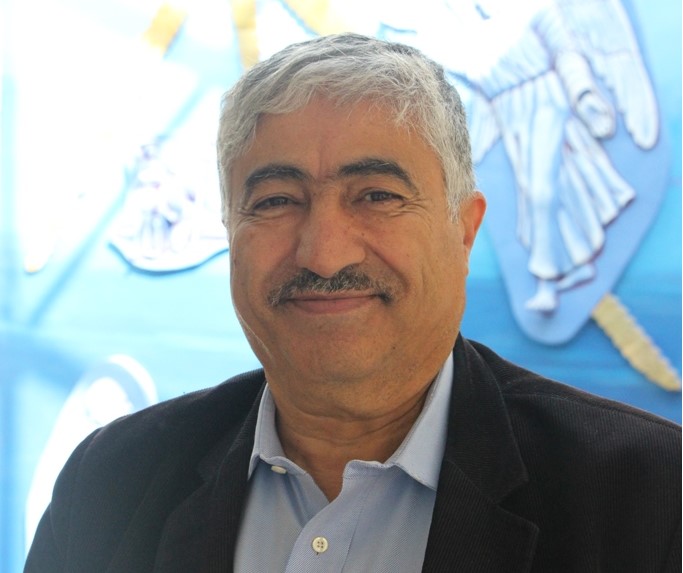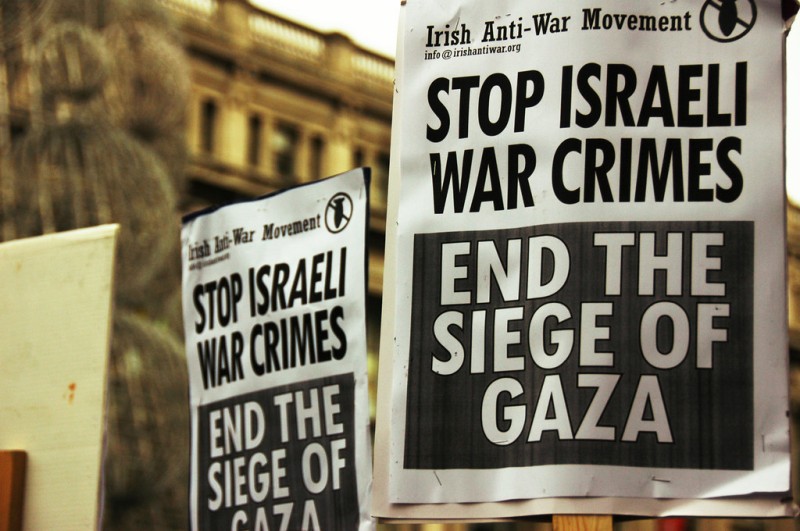I want to be clear from the beginning that nothing excuses or justifies anti-Semitism. There is no question that classical Western anti-Semitism aimed against Jews (rather than other Semites) is a vile and pernicious phenomenon which has contributed to much suffering over millennia, and ultimately led to the Holocaust in Germany.
The history of this vile phenomenon is well known and documented, and has many causes. Understanding these causes is crucial, but does not in any way justify anti-Semitism.
Part 1
One of these causes was the religious conflict with Christianity. Christians are fully aware of the Jewish roots of their faith. They share with Jews the Old Testament as the foundation of their faith and see in Christianity the legitimate extension and fulfillment of Judaism. Nonetheless, many Christians historically felt outraged that Jews did not accept Jesus as their Messiah, and they felt a deep theological need to force them to “see the light” and acknowledge Christianity as the true successor and fulfillment of their scripture. They also were taught that Jews had murdered Christ, shouting that they demanded his crucifixion and agreeing to have “his blood upon us and our children” (Matthew 28:25). Other causes had to do with the scapegoating of Jews in Europe and the ease of blaming them for economic and other woes.
Yet the trauma of the Holocaust, rooted as it was in historical anti-Semitism, was a qualitatively different phenomenon, and has given rise to a distinctive syndrome which has impacted many, particularly the modern Israeli government and its apologists and supporters. For many Jews and non-Jews, the experience of the Holocaust led to a determined, principled opposition to all forms of racism and discrimination, and an impassioned commitment that “Never Again” shall we allow this to happen to anyone.
For others, it became a carte blanche for exemption from all rules and laws and moral strictures other than the prevention of this evil from ever reoccurring to the Jewish People. In other words, “Never Again” will this be allowed to happen to Jews, and in seeking the power to achieve that end, everything is permissible. This syndrome has included a deep distrust of all people, and an exaggerated reliance on military power to ensure survival.
For the people of the Middle East, however, discrimination against Jews, and antipathy and hatred towards them as a group, is an entirely different idea, more akin to the garden-variety form of tribal and ethnic rivalries and antagonisms that they lived with for millennia. As in every society where different tribes and ethnicities live in close proximity, there is a lot of group solidarity, and conversely, some vile manifestations of racism and discrimination against other, particularly minority, groups.
It is true that the Prophet Mohammad had a mixed history with Jews (and Christians) and was particularly upset at two instances of betrayal when he had a military pact with Jewish tribes which they breached. This led to harsh statements about Jews in the Hadith, and even the Qur’an, but the dominant attitude of Islam and Moslems towards Jews (and Christians) is that they are “People of the Book” whose prophets were recipients of divine revelation, and were revered by Moslems. They were inspired by the same God, with the final revelation and “seal” descending on Mohammad to complete and “perfect” divine revelation, which was previously given to Jews, then Christians. Unlike early Christianity, therefore, Islam did not embody any deep theological conflict or animosity towards Jews or Judaism.
Arab Muslims, and Palestinians in particular, have had a long history of neighborly relations with Jews, who lived in their self-defined neighborhoods, particularly in Jerusalem and Safad, and who, until almost a century ago, were viewed as Palestinians of the Jewish religion. In language, social habits, food, music, and identity, they were Arab, living under the relatively progressive autonomy granted by the Ottomans to different non-Moslem minorities under their rule. Jews living in other Arab countries as well, like Iraq and Yemen and Egypt, also had similar experiences and recall fondly their neighbors and relationships for centuries before the creation of the State of Israel and the political catastrophes that drove them from their homes in Arab countries.
The Zionist movement, the influx of European and other Jews into Palestine, and the creation of the State of Israel, with its concomitant Nakbah, changed the whole picture. The new understanding of anti-Semitism, rooted in the Holocaust, deeply impacted the Israeli/Palestinian conflict, and the impact of the Holocaust must be fully understood by anyone who is involved in it.
There is no doubt that for many Zionists and their supporters, the event of the Holocaust seared their consciousness and led to a deep wound that has produced totally irrational positions that have no relationship to reality or to the actual dangers or challenges they face. In the wake of the Holocaust, anti-Semitism and any of its manifestations, however mild, were elevated to a unique status. The status of absolute and pure evil, of a genocidal variety, that must be fought relentlessly, without compromise. I call this “The Holocaust Syndrome.”
As a result of Holocaust Syndrome, anti-Semitism in Europe began to be treated as a criminal matter. Even the foolish denial of objective historical facts related to the Holocaust, instead of being laughed off and ridiculed, as they would be in any society that values pluralism and freedom of speech, became a specific criminal offense that carried lengthy multi-year prison terms. In this sense, “anti-Semitism” also became a separate and distinct phenomenon, distinguished from other forms of “hate speech,” incitement, racial bigotry, and religious and ethnic intolerance and discrimination.
With the creation of the state of Israel, which was presented by Zionists as the answer to European anti-Semitism, this new understanding became a very useful tool in the struggle between the Zionists and the indigenous Palestinian population. Tremendous support could be garnered for the new state, and failure to wholeheartedly support that state was viewed as a modern manifestation of anti-Semitism, viewed in this new light as a genocidal and absolute evil. Challenges to its policies or behavior, or even offering alternative political solutions (such as a binational state or a secular state accommodating Jews and Palestinians), were viewed as implicitly denying the legality and legitimacy of the Jewish state, and was equated with calling for its physical destruction and demise.
Even calling for “even-handedness” was roundly condemned. Support for Palestinians and their legitimate rights, from this perspective, was seen as akin to calling for a second genocide. Few in Europe or the US were willing to risk even suspicion that they were “modern Hitlers,” and the moral outrage at the Nazi Holocaust, as well as the guilt of failure to prevent it, was conveniently transferred to the Arabs and the hapless Palestinians.
In the United States, the situation became patently absurd, as the “almost white” Jewish community gradually consolidated its power, wealth, and influence in all sectors of society, and became a fully integrated part of the establishment. In crucial sectors like banking, finance, media, the legal profession, academic institutions, arts, the film industry, and political life, their influence both as individuals and an organized community far exceeded their numbers. To be sure, there are still people in the United States and European countries who hate Jews, just as there are people (often the same) who hate Blacks, Latinos, Arabs, Moslems, Catholics, etc…
Yet, as a group, the Jewish community is hardly vulnerable in the US today. As individuals, and as a group, they have access to legal protection, to political power, to the media, and to the institutions of governance and decision-making that other minorities and communities do not have. It is hard to argue that there is today institutional or systematic discrimination against Jews like there is against other minorities. More often than not, the complaint is that they are too securely embedded into the establishment.
However, there are quite a few Jews in the US for whom the experience of the Holocaust is still fresh, whether through the historical trauma experienced or passed to them by an earlier generation, and their sensitivity to real and perceived anti-Semitism is sharp, constant, and out of proportion to the actual dangers and challenges they currently face. This trauma has also been passed down to another generation as part of the historic memory. The very word “anti-Semitism” for them continues to evoke absolute and genocidal evil, rather than repulsive intolerance and discrimination, as in other forms of racism and bigotry.
Jews have sufficiently integrated into the American experience making their narrative compelling and normative for American society as a whole. In this manner, they often paradoxically strengthen conspiracy theories about “Jewish control” that are reminiscent of the infamous “Protocols of the Elders of Zion.” Successful and effective silencing of those with differing views on the Israel/Palestine question and the exacting of a heavy price upon those who resist them adds to this trend, and therefore becomes counterproductive for the American Jewish community itself. Decent and principled public figures, like former President Jimmy Carter, were stung with this false accusation of anti-Semitism, and many more have been silenced by the mere threat of its being directed against them.
The short and long of it is that the Jewish community in the US today is not a victim or a vulnerable community, but part of the powerful and privileged class. Many of its members do, however, continue to be wounded and scarred, and there continues to be bigotry and racism against them in some circles, much of it having been pushed underground, but this is NOT sanctioned, institutional, or acceptable. While such a phenomenon still exists, it is certainly not in the nature of a genocidal, existential threat, however vile it is.
The danger is that excessive sensitivity, and insistence on treating political positions on the Israeli/Palestinian issue as being anti-Semitic, in the sense I described above, runs the danger of heightening, rather than fighting, anti-Semitism, and reinforcing stereotypes which can be tapped into to resurrect real threats and dangers to the Jewish community at some future time.
There are many who have used the label of anti-Semitism to attack any and all criticism of the state of Israel and who have even labeled acts of nonviolent resistance, such as BDS campaigns, with the same vitriolic attacks that sees such positions as representing genocidal evil that must be eliminated with vigor and without hesitation or compromise. Such positions dilute the meaning of anti-Semitism and deprive it of its ethical and moral power. If the situation ever changes, and Jews once again become vulnerable in this country (through the rise of right wing intolerant extremism, for example), we may find that there will be little sympathy for Jews, as they have cried “wolf” too often.
On the other hand, there is great value in Jewish involvement on the right side of history: by taking principled and ethical positions on the Palestinian issue; by taking a strong position on all forms of racism and discrimination, including Islamophobia, which is a far more “imminent and present danger” than anti-Jewishness; by involvement in human rights, anti-racism campaigns, and by principled support for the truly disadvantaged and marginalized. Such positions are arguably far more in line with the teachings of Judaism than insular, tribal ethno-centrism. But this is a decision to be made by Jews themselves, and not preached to them by outsiders, particularly by Palestinians like myself who have an axe to grind.
In Israel/Palestine, however, the situation is very different, though similarities exist. There, an entire population was raised with the idea that the Jewish state was the answer to the Holocaust. As such, the pain and trauma of the Holocaust was an essential national ingredient used to justify and solidify a wide variety of actions and policies that would otherwise be unjustifiable. Addressing this phenomenon as it has manifested in Israel/Palestine will be the goal of Part Two of this piece.








